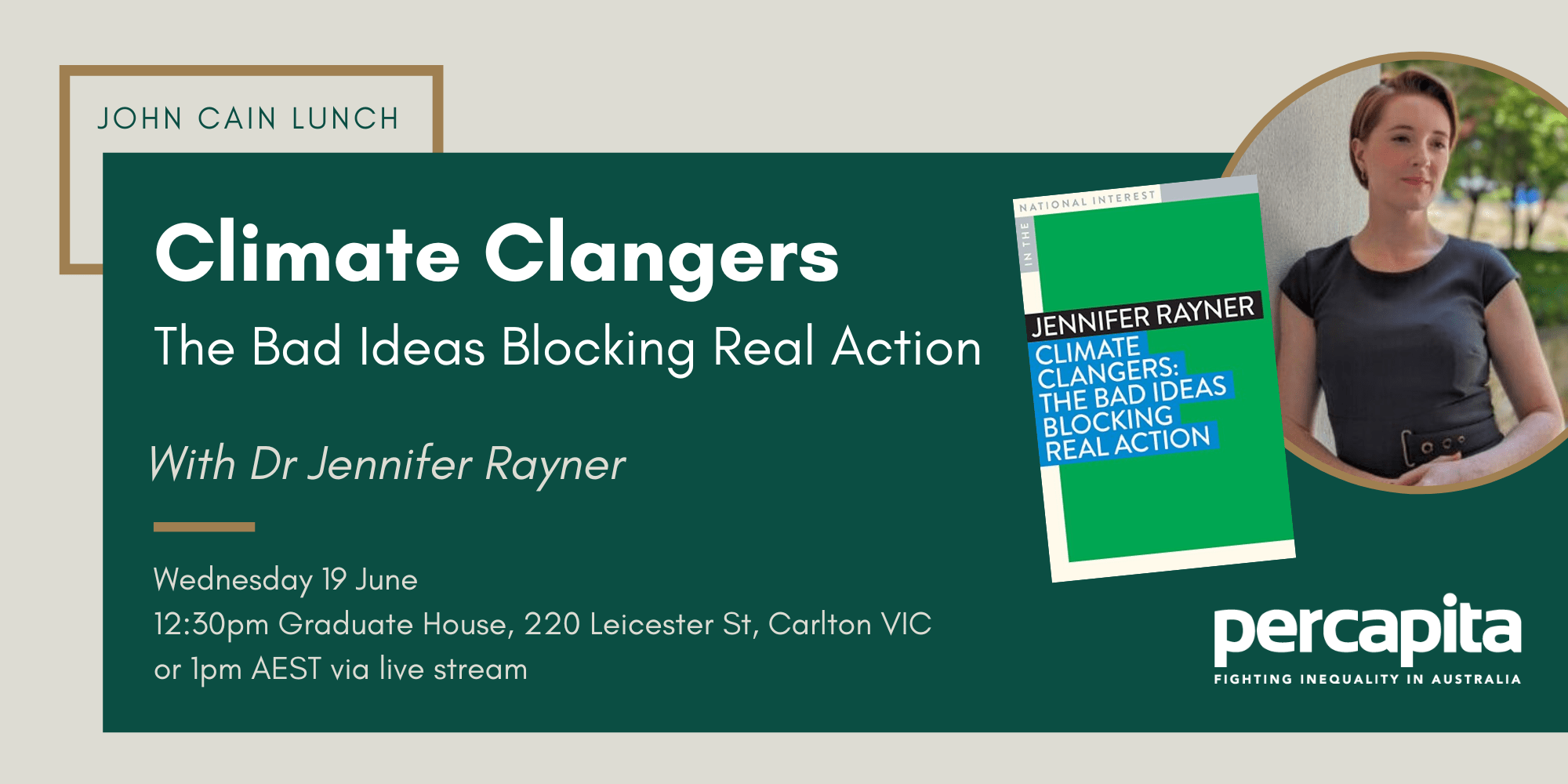The impacts of climate change keep getting worse, but the typical framing of the problem and the solutions so far being pursued are seriously insufficient. As a result, the steps we’re taking to build a clean energy economy and move beyond fossil fuels are far too incremental for the existential nature of this threat. So what’s holding us back?
Climate Clangers calls out three bad ideas that are blocking action on climate change at the speed and scale we need right now:
- Decarbonising our economy must not impact economic growth.
- Net-zero accounting can keep global heating within survivable limits.
- Strong action now will cost us more than we can afford.
Clung to by politicians and leaders of industry, and rooted in outdated and wishful thinking, each of these ideas is fundamentally wrong. With the world continuing to warm, the longer we leave these assertions unchallenged, the more dangerous they become.
In this sharp and lively analysis, Dr Jennifer Rayner makes the case for better ways to gauge the health of our clean economy, track real progress on cutting carbon pollution, and account for the gains from immediate, decisive measures. We need new ways of thinking about the life-threatening challenge of global warming so that we can get on with real climate action.
Dr Rayner spoke at our June 2024 John Cain Lunch. Watch the recording below.
———————————————————————————–
Dr Jennifer Rayner is Head of Policy and Advocacy at the Climate Council, an independent, people-powered organisation advocating for climate science and solutions. She works at the nexus of evidence, policy and politics to catalyse real action that can permanently cut carbon pollution across energy, transport, industry and the built environment.
Jennifer has been a chief of staff and senior policy adviser across federal and state politics, with a focus on advancing a positive climate agenda across the spectrum of government activity. She has previously authored books focused on intergenerational inequality and the economic prospects of workers in transitioning industries—both central priorities in designing equitable and inclusive action to tackle the climate crisis.

